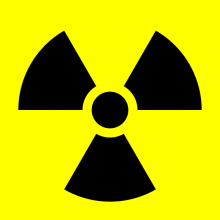Iran’s nuclear program has been further uncovered by the United Nations’ nuclear watchdog agency in a new report, and it confirms that Iran was conducting “activities” relevant to nuclear weapons until 2009. The New York Times said the report, published by the International Atomic Energy Agency (IAEA), is ultimately inconclusive about Iran’s nuclear program—possibly because Iran failed to fully answer all questions posed to them.
This led Israel to argue the investigation should not stop there. “Unless and until the investigation is completed, the world will not know the full extent of Iran’s covert nuclear weapons program and where it stands today,” said Prime Minister Benjamin Netanyahu, in comments released by his office. However, The New York Times report implied this would likely wrap up the Iranian nuclear investigation, as the release of the report is a key part of the nuclear deal signed with major world powers earlier this year.
However, the IAEA report did make some interesting assertions, despite the incomplete cooperation from Iran. Among them are that Iran was testing parts relevant to the development of nuclear weapons before 2003 and had worked on computer models for a nuclear bomb prior to 2004, according to The New York Times article.
The activities done until 2009 were limited to “feasibility and scientific studies,” while also obtaining “certain relevant technical competences and capabilities,” according to the Voice of America report on the IAEA research.
But The New York Times noted that Iran did not fully respond to all the IAEA’s questions, and so the IAEA conclusion that there isn’t proof that Iran completed its nuclear bomb research may not be the full picture.
That’s why Netanyahu was calling for more to be done. Said the Israeli leader, “The report exposes the methods Iran used to conceal and deceive regarding its nuclear program… Israel expects the international community to continue and expand the IAEA investigation in these areas and to use all means at its disposal to ensure that Iran will not be able to secretly build a nuclear weapon.”
(By Joshua Spurlock, www.themideastupdate.com, December 2, 2015)

